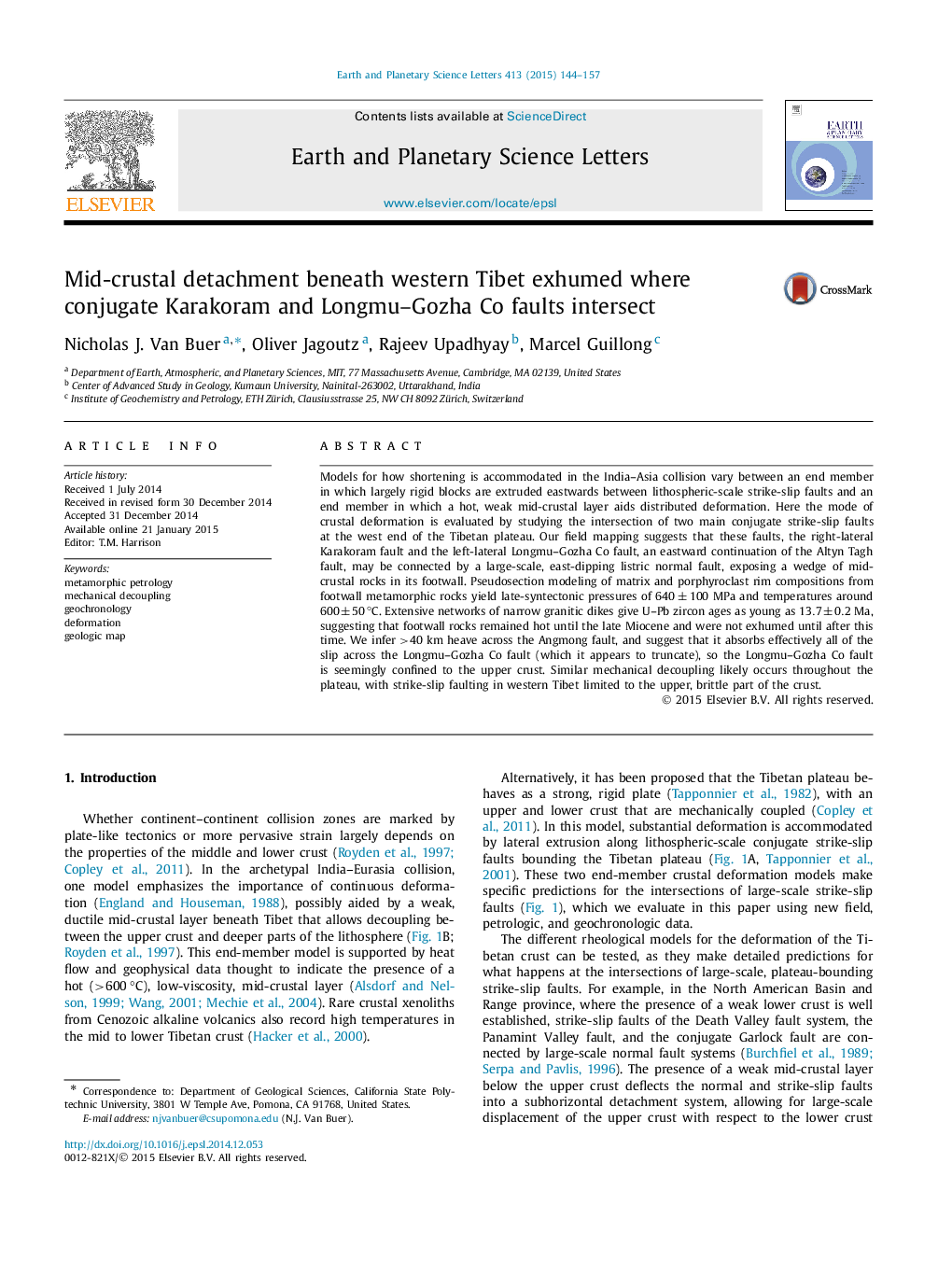| Article ID | Journal | Published Year | Pages | File Type |
|---|---|---|---|---|
| 6428606 | Earth and Planetary Science Letters | 2015 | 14 Pages |
â¢We mapped a normal fault system linking two major conjugate faults in western Tibet.â¢This fault exhumes rocks from hot mid-crustal conditions (â¼640 MPa and â¼600â°C).â¢U-Pb zircon geochronology supports fault activity from Miocene time to the present.â¢We propose large-offset detachment, enabling eastward escape of Tibetan upper crust.â¢Strike-slip in the upper crust may be mechanically decoupled from lower depths.
Models for how shortening is accommodated in the India-Asia collision vary between an end member in which largely rigid blocks are extruded eastwards between lithospheric-scale strike-slip faults and an end member in which a hot, weak mid-crustal layer aids distributed deformation. Here the mode of crustal deformation is evaluated by studying the intersection of two main conjugate strike-slip faults at the west end of the Tibetan plateau. Our field mapping suggests that these faults, the right-lateral Karakoram fault and the left-lateral Longmu-Gozha Co fault, an eastward continuation of the Altyn Tagh fault, may be connected by a large-scale, east-dipping listric normal fault, exposing a wedge of mid-crustal rocks in its footwall. Pseudosection modeling of matrix and porphyroclast rim compositions from footwall metamorphic rocks yield late-syntectonic pressures of 640±100MPa and temperatures around 600±50°C. Extensive networks of narrow granitic dikes give U-Pb zircon ages as young as 13.7±0.2Ma, suggesting that footwall rocks remained hot until the late Miocene and were not exhumed until after this time. We infer >40 km heave across the Angmong fault, and suggest that it absorbs effectively all of the slip across the Longmu-Gozha Co fault (which it appears to truncate), so the Longmu-Gozha Co fault is seemingly confined to the upper crust. Similar mechanical decoupling likely occurs throughout the plateau, with strike-slip faulting in western Tibet limited to the upper, brittle part of the crust.
Graphical abstractDownload high-res image (227KB)Download full-size image
